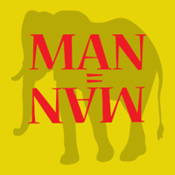
Overview
Synopsis
Galy Gay is a porter living peacefully near a British military garrison in Kilkoa, when one day he decides to purchase a fish. On his way to the market, Galy gets caught up in the schemes of a group of ne'er do well soldiers who have burglarized a holy site. The soldiers convince Galy to replace their comrade, who has gone into hiding to avoid punishment for the vandalism. What began as a 10-minute trip to the market turns into a lifetime as the “soft-natured” Galy goes along with the soldiers’ plot, gains power and military glory, and loses his real identity in the process.
One of Brecht’s earliest plays, Man Equals Man is an excellent example of agitprop theatre - the “theatre of ideas” in support of communism - and also of Brecht’s unique expressionist style. While the characters on stage delight in and laud Galy Gay’s transformation from impoverished laborer to decorated and fearsome military general, the audience must ask themselves what the real cost is for Galy’s apparent “heroism,” and in what ways the spirits and identities of individuals are destroyed by the machines of war, colonialism and capitalism.
Brecht’s short play The Elephant Calf was intended to be an interlude to Man Equals Man, potentially to be played at the intermission. It features several of the same characters, including Galy Gay as the titular baby elephant. Although The Elephant Calf is not usually performed as an intermission piece in modern productions of Man Equals Man, the two plays are interlinked, with The Elephant Calf offering a farcical comment on the longer work.
Show Information
Context
Plot
Characters
| Name | Part Size | Gender | Vocal Part |
|---|---|---|---|
|
Lead |
Male |
Non-singer |
|
|
Supporting |
Male |
Non-singer |
|
|
Supporting |
Male |
Non-singer |
|
|
Supporting |
Male |
Non-singer |
|
|
Supporting |
Male |
Non-singer |
|
|
Supporting |
Male |
Non-singer |
|
|
Supporting |
Male |
Non-singer |
|
|
Supporting |
Female |
Non-singer |
|
|
Featured |
Female |
Non-singer |
|
|
Featured |
Male |
Non-singer |
|
|
Ensemble |
Male |
Non-singer |
Songs
A song with an asterisk (*) before the title indicates a dance number; a character listed in a song with an asterisk (*) by the character's name indicates that the character exclusively serves as a dancer in this song, which is sung by other characters.
Monologues
Scenes
Key Terms
Political theatre intended to agitate and promote a cause, often associated with socialist and revolutionary movements.
Relating to the theatrical style of Bertolt Brecht, emphasizing social critique and distancing the audience from emotional immersion.
A theme explored in postcolonial theatre, addressing oppression, cultural loss, and identity during and after colonization.
A political ideology often depicted or explored in 20th-century epic or protest theatre for social critique.
A theatrical style that distorts reality to convey inner emotional experience, popular in early 20th-century drama.
Works not protected by copyright and available for free use or adaptation. Many classical plays, including Shakespeare's, fall into the public domain.
Videos
Sorry! We do not currently have videos for this guide.
Quizzes
Themes, Symbols & Motifs
Sorry! We do not currently have learning modules for this guide.
Quote Analysis
Sorry! We do not currently have learning modules for this guide.
